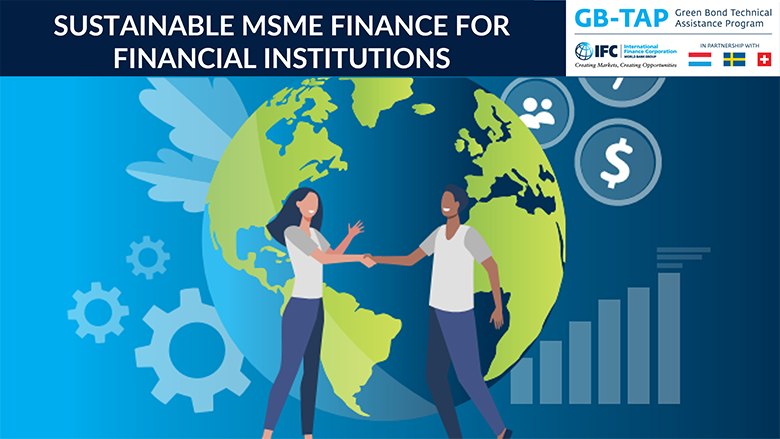Finance

-
 Digital Financial Services (DFS), Fast Payments and Financial Market InfrastructureToolkit | Financial Inclusion | For Government Officials
Digital Financial Services (DFS), Fast Payments and Financial Market InfrastructureToolkit | Financial Inclusion | For Government OfficialsThis toolkit explains the rapid adoption of fast payment systems, driven by technological progress and evolving market needs, which require modernized financial infrastructures and flexible regulatory frameworks. It includes a digital financial services reference guide that curates evolving good practices in regulatory and policy frameworks. The course also covers Project FASTT, which aims to accelerate fast payment system adoption in low- and middle-income countries.
-
Fundamentals of Disaster Risk FinanceE-Learning | Financial Resilience | For Government Officials and Private Sector
This course explores how governments make challenging trade-offs after a disaster and highlights various global projects focused on disaster risk finance. It provides key insights into the purpose, scope, development impact, and basic principles of disaster risk finance. By the end of the course, learners will be empowered to discuss disaster risk finance with relevant stakeholders.
-
Introduction to Disaster Risk Finance AnalyticsE-Learning | Financial Resilience | For Government Officials and Private Sector
This course teaches how to forecast the costs of future disasters and develop cost-effective disaster risk finance strategies. Through practical exercises, learners will explore a five-step disaster risk analytics workflow to assess the fiscal impact of disasters and use analytics for decision-making and financial planning. The course helps improve understanding of risk information and equips learners to make informed, risk-based financial decisions.
-
Disaster Risk Finance in the PacificE-Learning | Financial Resilience | For Government Officials and Private Sector
This course explores how Pacific Island countries are strengthening their financial preparedness for disasters. It covers disaster risk finance instruments and their application in the region, using real-world examples and case studies to demonstrate their impact on disaster preparedness. The course is designed to enhance the understanding of disaster risk finance principles and tools for public servants, regional organizations, and students in related fields.
-
Disaster Risk Finance in the Pacific: Get Ready to Respond!E-Learning | Financial Resilience | For Government Officials and Private Sector
This course explores how Pacific Island countries respond to disasters, highlighting the key roles played by finance personnel in disaster management. It covers relevant disaster and finance legislation, as well as the procedures and structures used to coordinate responses, with a focus on the functions of finance personnel in disaster preparedness and response. The course is designed for both finance and non-finance personnel involved in disaster response, providing valuable insights into their roles through country-specific case studies.
-
National Anti-Money Laundering and Countering the Financing of Terrorism Risk AssessmentIn Person | Financial Integrity | For Government Officials and Practitioners
This training is composed of a series of modules to assist countries to undertake a risk assessment of their ability to fight money laundering and terrorism financing and the threats and vulnerabilities in each of their sectors.
-
Annual Seminar for Senior Bank Supervisors from Emerging EconomiesIn-Person | Financial Stability | For Government Officials
The seminar provides awareness and training on current and emerging risks facing the global economy, with key focus areas evolving around updates from the Basel Committee, supervision of financial, operational and climate risks, corporate governance and risk culture, and digitalization in the financial sector.
-
Green Banking AcademyHybrid | Sustainable Finance | For Private Sector Leaders
The International Finance Corporation (IFC) Green Banking Academy (GBAC) supports banks in Europe and Central Asia to accelerate climate finance and drive sustainable growth. It offers tailored training, leadership events, and tools to guide banks through their green transformation. Key focus areas include diagnostics, strategy, capacity building, product development, and market growth.
-
Clima LabOnline | Climate Risk Management | For Private Sector Leaders
ClimaLAB equips financial institutions with the skills and tools to manage climate risks and comply with EU regulatory standards. Over 10 weeks, participants work on practical assignments, including drafting Transition and Adaptation Plans. The program is fully online, combining expert guidance, collaborative learning, and regulatory best practices.
-
Sustainable MSME Finance for Financial Institutions
Micro, small, and medium enterprises (MSMEs) are vital for a green and inclusive economy but face significant financing challenges, especially in emerging markets. This self-paced course helps financial institutions implement sustainable finance solutions tailored to MSMEs’ unique needs. In just 45 minutes, participants learn a step-by-step process to design, manage, and measure impactful sustainable finance operations.
-
DigiLabHybrid | Digital Transformation | For Private Sector Leaders
DigiLab Finance accelerates the digital transformation of financial institutions through a 12-week intensive program. Participants gain hands-on experience in assessing technology gaps, sourcing solutions, and developing a comprehensive digital strategy. The program concludes with a clear, actionable roadmap to guide institutions through successful implementation.









